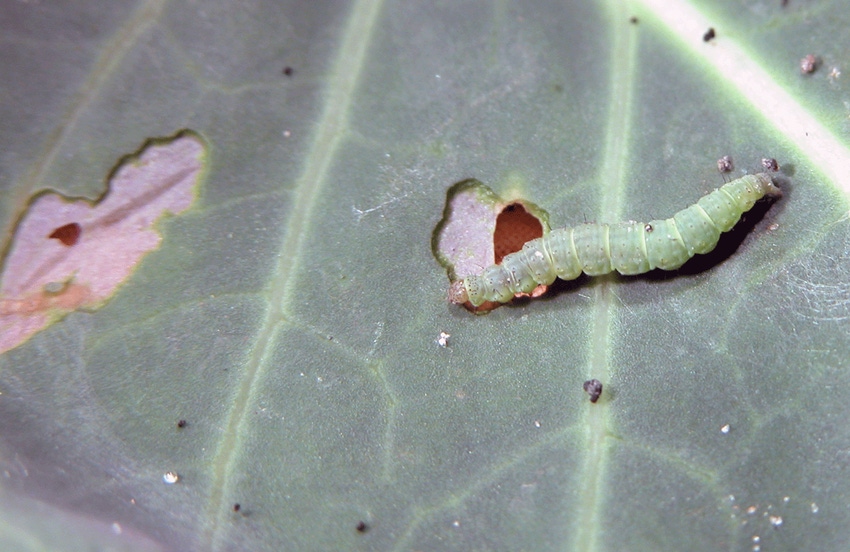
The diamondback moth readily develops resistance. Brassica farmers try to stay ahead of its natural tendency to adapt, and some are trying a new novel way to handle it.
"It basically comes down to what you haven't exposed it to. The products that tend to work more consistently than others, not surprisingly, are the more expensive products we tend to use less" said Stormy Sparks, University of Georgia Extension vegetable entomologist, adding that the damage it causes varies from field to field.
He said 2019 tests show diamondback moth developing BT resistance. "We've got growers putting out combination products. I've heard of as many as four things in the tank at once. I understand why it's done. You're trying to make it through the season. My opinion, it's not a good idea because you're running a higher risk of selecting for resistance," he said.
Proclaim and Radiant currently offer good DBM control. But one UGA study compared a Proclaim insecticide and Radiant insecticide rotation program to a Proclaim-Radiant combination application. The combination provided only a slightly "improved efficacy on some dates, but overall probably not beneficial enough, because you're going to lose both of those products more rapidly than if you're rotating them," he said.
Diatomaceous earth, or DE, a rock-based, fine white powder, may prove to be a novel way to control DBM, but hard data doesn't support it right now. "I know people are using diatomaceous earth. I've looked and looked for information on it that would tell me it works. I haven't found anything that says it works. I'm not going to tell you it doesn't work," he said.
In one test to control DBM, he sprayed DE five times over six weeks. The plot had zero diamondback moths, which is good. But his check plot, which didn't get the DE applications, also had no diamondback moths. Inconclusive.
Another pest, the pepper weevil, is now firmly on vegetable growers' radars and the industry knows the pest overwinters in Georgia now. To control it, Sparks reminded growers to:
Destroy old fields, which removes the weevils' food sources.
Treat each field at first bloom with one or two applications to prevent weevils from establishing in the crop early.
Monitor closely, but this requires a lot of time and effort.
If weevils are present or if treating preventively, don't go longer than five days without a control application.
Destroy fields when weevils are not being managed
About the Author(s)
You May Also Like






